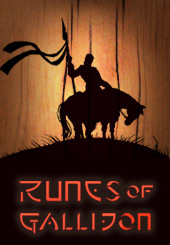The Orders are a collection of laws and rules that span the Age of Gallidon and document a wide range of topics regarding the lives of Imperial Citizens: legal, political, ethical, and societal obligations are covered, as well as historical aspects of the world, the Emperor, the Greater Nobles, and the Empire.
The First Order
Gallidon the Third laid down the first volume to be written. It became known as The First Order, recording the creation of the world, Gallidon and his Empire. Subsequent entries were simply named based on their sequence, although many became known by a more meaningful name or were grouped into logical subsets. Individual Orders are normally referred to as volumes, and groups of related Orders are normally referred to as a collection. For example, The First Order is also referred to as “The Foundation Order,” and a group of dozens of Orders that dictate the consequences of crime is a collection called “The Civil Orders.”
Expansion
While primarily historical in nature to begin with, over five thousand years The Orders expanded to include aspects necessary for the building and maintaining of a sprawling, growing civilization. These included Orders that documented many aspects of life at all levels of society.
- The roles and associated responsibilities for various administrative seats within each Noble House's respective lands are detailed in several Orders collectively referred to as The Administrative Orders.
- Two collections of Orders outlined the civil and ethical strictures citizens are expected to follow (and the possible consequences of not doing so): The Civil Orders and The Ethics Orders, respectively.
- Summaries of roles citizens should assume in the Empire (e.g., craftsmen, farmers, traders, etc.), as well as the terms by which they should interact: The Profession Orders.
- The written language, as codified in The Inscription Order, proved a turning point in the Empire, as it provided a standard form of written communication across the continent.
- The standards of weights and measures, as codified in The Standards Order, greatly facilitated trade and commerce.
Enforcement
The enforcement of The Orders starts at the local level of government or ruler and works its way up the ladder, ultimately reaching to the Emperor.
Conflicts
The sheer breadth and depth of The Orders has made it a work almost incomprehensible by a single individual, as well as unwieldy. To date, there is no mention of an Order being rescinded or revised. Typically a new Order is written if it becomes necessary to make adjustments to existing Orders, resulting in a series of never-ending amendments.
Legal Disputes
As The Orders became more extensive (and convoluted), the need arose for someone to interpret them and provide insight. Initially, these were local individuals that administrators turned to for help when considering civil disputes or discerning the historical nature of a particular aspect of the Empire. Gallidon the Eighth recognized the value of standardizing a role to interpret The Orders, and he commanded a body of scholars to oversee the education, training, and management of these interpreters across the Empire.
The Society of Orders
The body of scholars set up the Society of Orders and provided that individuals who successfully completed training under the Society's guidance would be called a Scholar of the Orders (there is no gender restriction). The Society has a top-down, command-and-control structure, with formal edicts and rulings being handed down from the ruling body within the Society (a group of ten individuals referred to as “The Council” that resides on the Imperial Isle) to mid-level members across the Empire who, in turn, ensure the communication and enforcement of the edicts at the lower levels of the Society.
Scholar of the Orders
It is common for even small towns to have a resident Scholar of the Orders in residence, and larger cities often have a multitude of them. Noble houses typically have at least one family member receive formal training from the Society of Orders.
- Login to post comments



